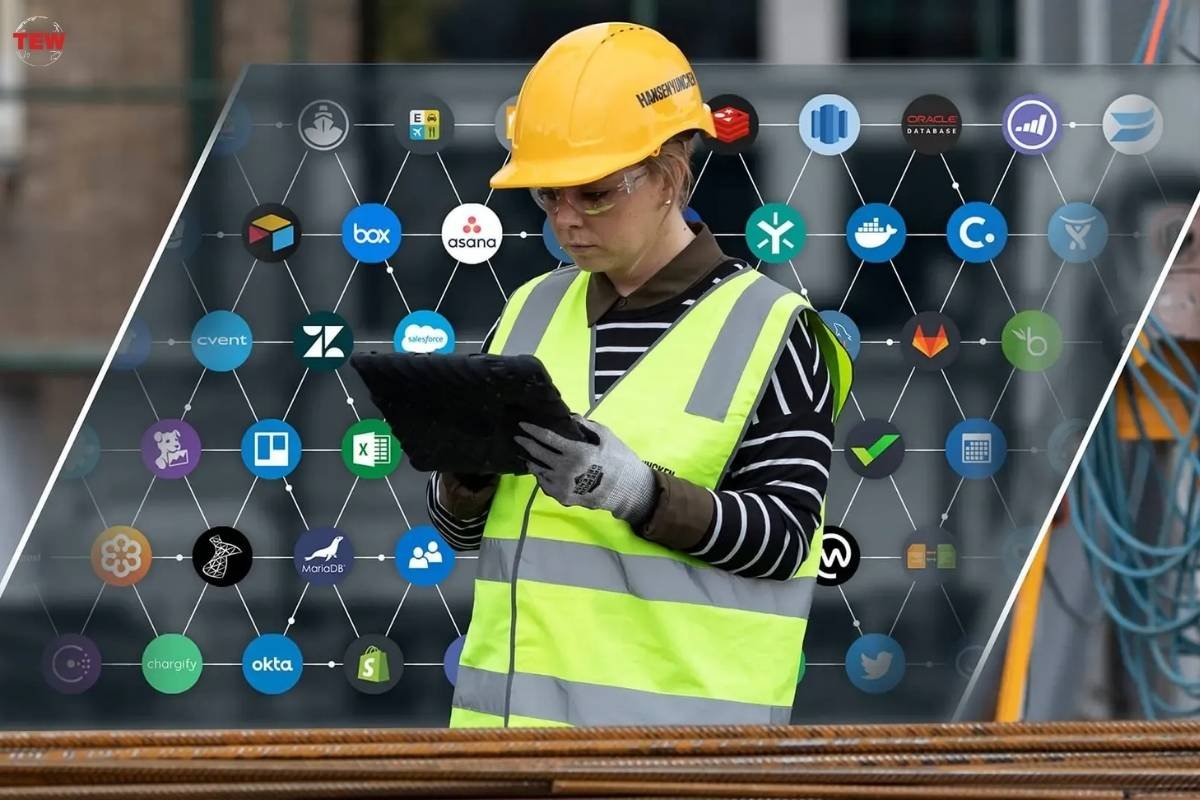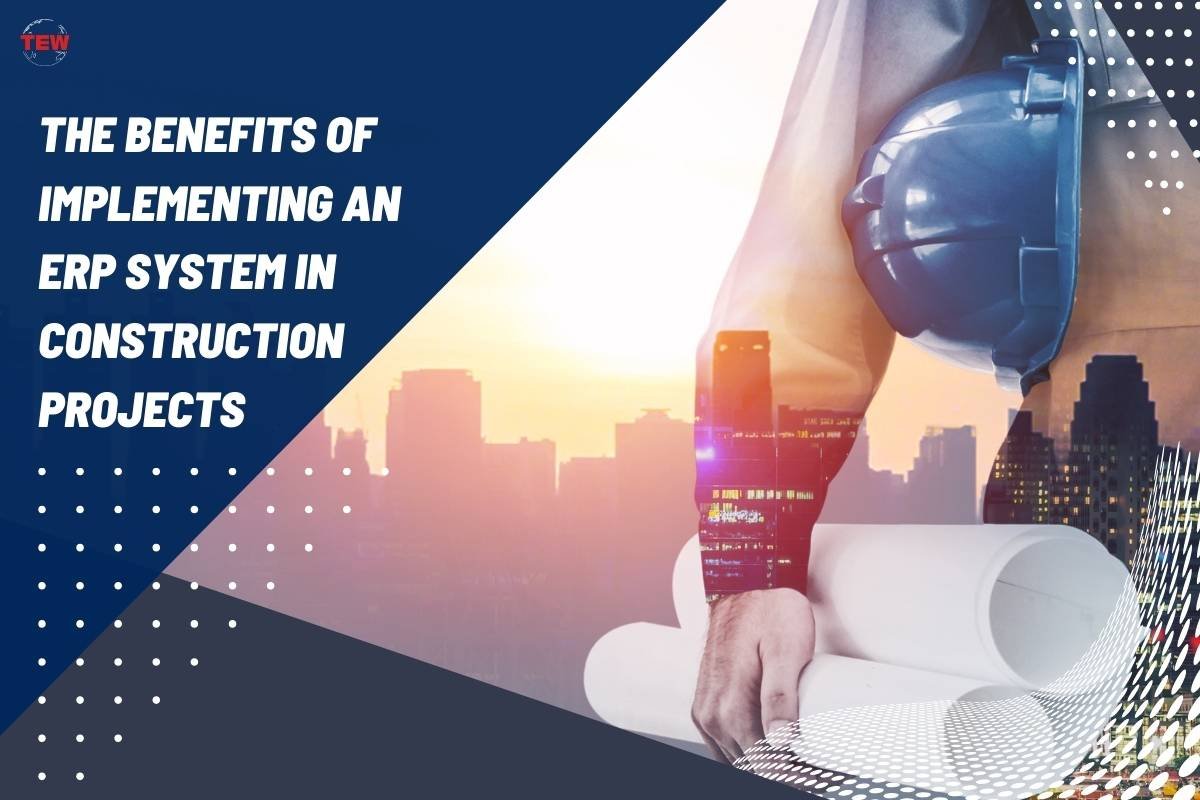Construction projects are intricate endeavors requiring meticulous coordination and precise management of numerous moving parts. As the industry evolves, so does the need for more sophisticated tools to manage these complexities. Enter the construction ERP system: a game-changer for construction project management.
What is a construction ERP system?
Before diving into the benefits, let’s briefly understand what an ERP system entails. At its core, an ERP system is software that integrates and automates essential business processes across an organization. These processes can include finance, HR, supply chain, project management, and more. In the context of construction, an ERP system helps in streamlining operations, improving efficiency, and enhancing decision-making.
Centralized Data Management

One of the primary benefits of implementing a construction ERP system in construction projects is centralized data management. Construction projects often involve multiple stakeholders, including contractors, suppliers, architects, and clients. Keeping track of all the data generated by these parties can be a nightmare without a centralized system.
Benefits of Centralized Data Management:
- Improved Collaboration: With all data stored in one place, stakeholders can easily access the information they need, fostering better collaboration.
- Data Accuracy: A single source of truth reduces the risk of errors and inconsistencies in data, leading to more accurate reporting and forecasting.
- Time Efficiency: Reduces the time spent on searching for information across multiple systems or spreadsheets.
Enhanced Project Management
Construction ERP systems are designed to handle complex projects by providing tools that enhance project management capabilities. From planning and scheduling to resource allocation and tracking, ERP systems cover all aspects of project management.
Key Project Management Features:
- Gantt Charts and Timelines: Visual tools for planning and tracking project progress.
- Resource Allocation: Efficiently manage resources like labor, materials, and equipment.
- Milestone Tracking: Keep track of key project milestones and deadlines to ensure timely completion.
Resulting Benefits:
- Increased Productivity: Streamlined processes and clear timelines boost overall productivity.
- Reduced Delays: Better resource management and milestone tracking minimize project delays.
- Cost Control: Enhanced oversight helps in keeping the project within budget.
Financial Management and Reporting
Managing finances in construction projects can be particularly challenging due to the large volumes of transactions and the need for precise budget control. A construction ERP system simplifies financial management by integrating all financial data into a single system.
Financial Management Features:
- Budgeting and Forecasting: Tools to create and manage budgets, and forecast future financial needs.
- Real-time Financial Reporting: Access to up-to-date financial reports and dashboards.
- Cost Tracking: Track all project-related expenses in real-time.
Financial Benefits:
- Better Budget Control: Real-time tracking and reporting help in maintaining tight control over budgets.
- Improved Financial Planning: Accurate data aids in better forecasting and financial planning.
- Enhanced Transparency: Financial transparency is increased, making it easier to identify and address any discrepancies.
Improved Supply Chain Management

Supply chain management is another critical aspect of construction projects that can be significantly improved with an ERP system. From procurement to inventory management, ERP systems provide comprehensive tools to manage the supply chain efficiently.
Supply Chain Management Features:
- Procurement Management: Streamlined processes for purchasing materials and equipment.
- Inventory Control: Tools to manage and track inventory levels in real-time.
- Supplier Management: Centralized database for managing supplier information and relationships.
Supply Chain Benefits:
- Cost Savings: Efficient procurement and inventory management can lead to significant cost savings.
- Reduced Downtime: Ensuring that materials and equipment are available when needed minimizes project delays.
- Supplier Relationship Management: Better management of supplier relationships can lead to more favorable terms and reliability.
Enhanced Decision-Making
In construction, making informed decisions quickly is crucial to the success of a project. An ERP system provides comprehensive data and analytical tools that empower project managers and stakeholders to make better decisions.
Decision-Making Tools:
- Data Analytics: Advanced analytics tools to analyze project data and identify trends.
- Dashboards: Customizable dashboards that provide a snapshot of key project metrics.
- Reporting Tools: Generate detailed reports on various aspects of the project.
Decision-Making Benefits:
- Informed Decisions: Access to accurate and up-to-date data ensures that decisions are based on facts.
- Proactive Management: Advanced analytics can identify potential issues before they become critical, allowing for proactive management.
- Increased Agility: Faster decision-making helps in adapting to changes and unexpected challenges.
Compliance and Risk Management
ERP systems provide robust tools to help manage these aspects effectively.
Compliance Features:
Regulatory Compliance: Tools to ensure that all regulatory requirements are met.
Audit Trails: Maintain detailed records of all transactions for audit purposes.
Risk Management Features:
Risk Assessment: Tools to identify and assess potential risks.
Risk Mitigation: Develop and implement risk mitigation strategies.
Compliance and Risk Management Benefits:
Reduced Legal Risks: Ensuring regulatory compliance reduces the risk of legal issues.
Enhanced Safety: Effective risk management leads to safer working environments.
Peace of Mind: Knowing that compliance and risks are managed effectively provides peace of mind to all stakeholders.
Implementation Tips

Implementing an ERP system in construction projects can be a complex process. Here are some tips to ensure a smooth implementation:
- Define Clear Objectives: Clearly outline what you aim to achieve with the construction ERP system.
- Choose the Right System: Select an ERP system that fits the specific needs of your construction projects.
- Engage Stakeholders: Involve all relevant stakeholders in the implementation process to ensure buy-in and support.
- Plan for Training: Ensure that all users are adequately trained to use the new system.
- Monitor Progress: Regularly monitor the implementation progress and make adjustments as needed.
Conclusion
The benefits of implementing an ERP system in construction projects are manifold. From enhanced project management and financial control to improved supply chain management and decision-making, Construction ERP systems provide the tools needed to manage complex construction projects effectively.




